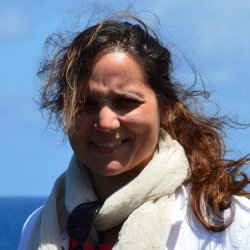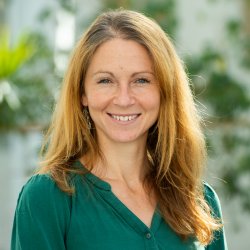Following in Daphne’s footsteps: Meet our female chemists
Surrey is home to an incredible range of female chemists who’ve made or are making their mark in research, industry and public engagement. As part of our Year of Surrey Women in Science and Engineering – marking 50 years since Daphne Jackson became the UK’s first female Professor of Physics at Surrey – we talk to a few of them.
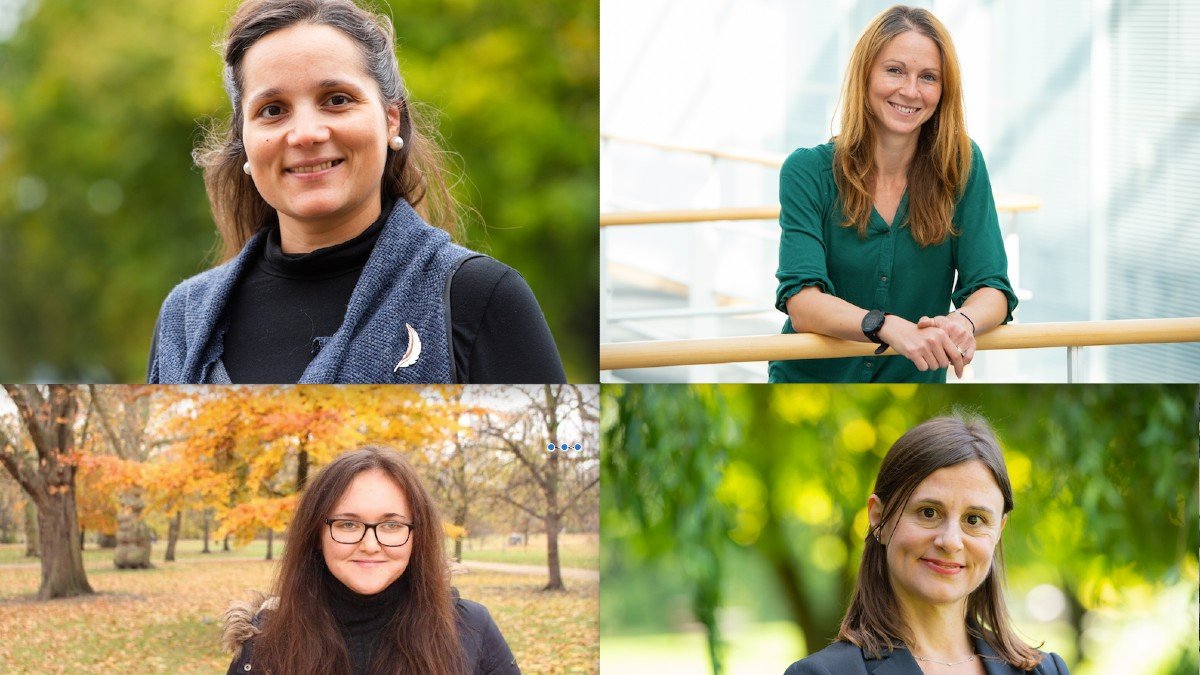
Celebrating Daphne's Jackson's legacy and female success in chemistry: (clockwise from top left) Dr Maya Al Sid Cheikh, Dr Melanie Bailey, Dr Daniela Carta and undergraduate Roma Mulholland
Surrey’s Professor Daphne Jackson is a key figure in UK science. How does her story resonate with you?
Dr Maya Al Sid Cheikh: Her fight to help women return to science after a break is still very real. I had my first child last year and, unfortunately, I struggled with the maternity leave and salary I was entitled to. There’s an assumption that women always have a partner with an income covering for them.
Dr Melanie Bailey: I have a supportive husband who’s worked with me to juggle two crazy careers and two kids. I expect Daphne had to do a lot more trail blazing than I ever have.
Dr Daniela Carta: I have great admiration for Daphne’s efforts to help women return to work after a career break. I admire her determination in pursuing her passion, despite the difficulties of being the only female professor in a male-dominated profession at that time.
Roma Mulholland: The fact such an inspirational woman taught at Surrey resonates with me as a female student here. Her achievements alongside other pioneering women should be celebrated. I’m proud the University recognises the importance of celebrating her.
Who have been the influential women on your academic journey?
Maya: Over my career, I’ve been mainly supervised by men. A woman I remember truly helping me before I got my position at Surrey was a professor of thermodynamic chemistry. She spent her personal time helping me with my studies after I failed my first exam in my bachelor’s degree. She really inspired me when I saw her laboratory and all the students she supervised.
Melanie: I was inspired by women I met at international conferences – especially those working in the very male-dominated area of Ion Beam Analysis. Iva Bogdanovic Radovic from Croatia and Lucile Beck from the Louvre do super interesting work uncovering secrets from historical paintings using physics, while also juggling families.
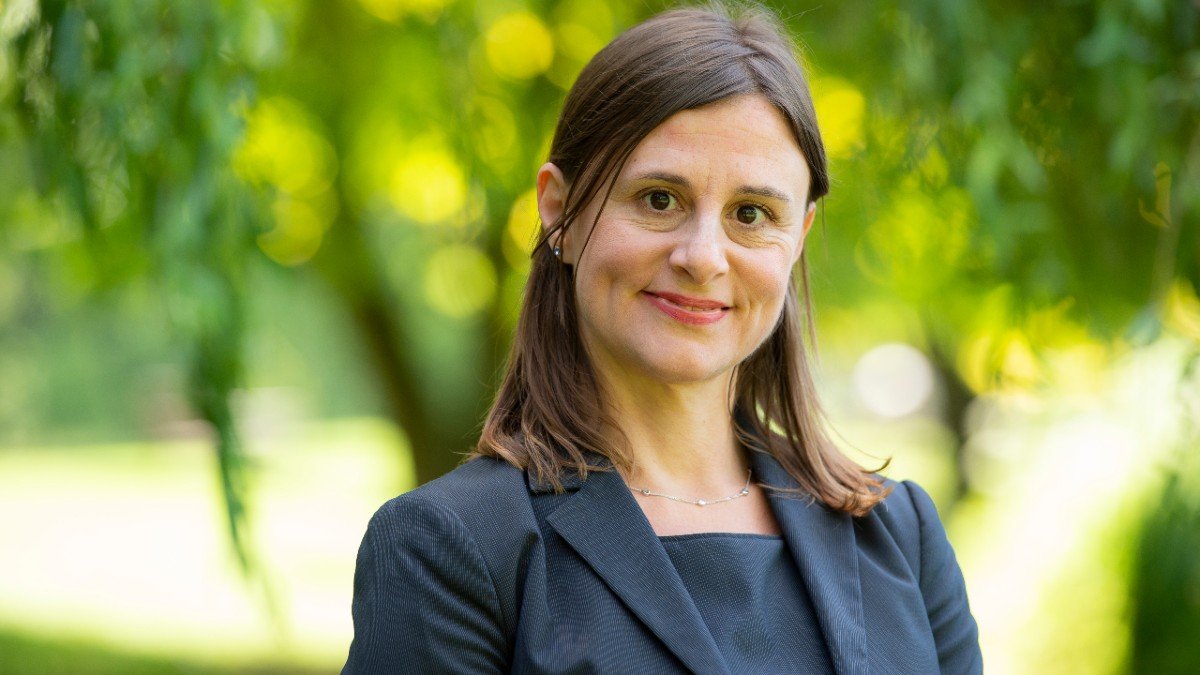
A female supervisor with a strong personality was an influence on Daniela's career
Daniela: I had a female supervisor during my final year project as an undergraduate. She had a very strong personality and she wasn’t afraid to take unpopular positions and decisions. I learnt a lot from her.
Roma: Dr Monica Sotello delivered engaging lectures and inspired students, while Katie Small became the first female board member at my placement company, Dycotec Materials
In particular, Dr Carol Crean has encouraged and supported me throughout my degree. She’s one of the inspirations behind my pursuit of a PhD.
What got you interested in chemistry?
Maya: It was during my very first lesson in chemistry in high school. The teacher, a woman, was talking about "What is a mole?" I loved it and I found all the following lab experiments exciting.
Melanie: I didn’t initially study chemistry. However, I had a wonderful physics teacher and I fell in love with astronomy and nuclear physics.
In my post-doc, I used the ion accelerator to measure materials for museums, police and biolgists. I worked with the police on an investigation and this led me to develop a passion for forensics. I snapped it up when a permanent position in forensics in chemistry was created!
Daniela: My passion for chemistry started when I did my A-levels. I won a regional competition that allowed me to attend the Italian National Olympic Games of Chemistry in Rome. That gave me the confidence to start my degree.
Roma: The Christmas Day Lectures delivered by the Royal Institution sparked my interest in science and chemistry.
What’s your area of research?
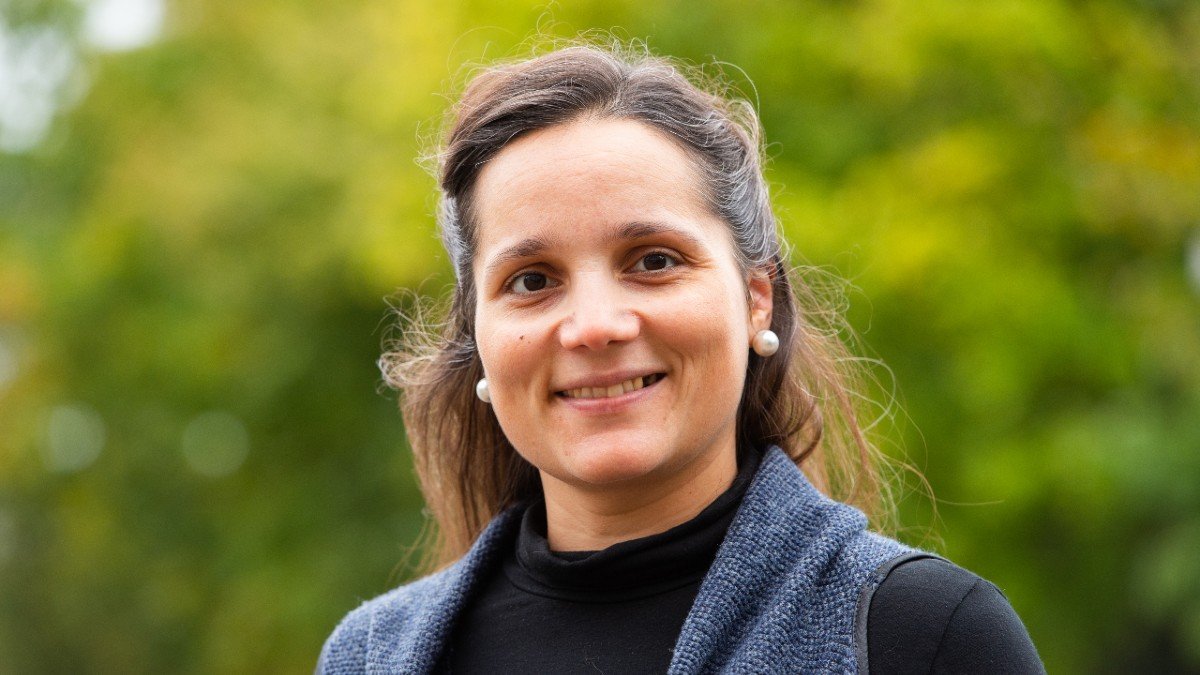
Maya's research examines the impacts of environmental contaminants and pollutants on organisms
Maya: I’m specialising in environmental analytical chemistry. I’m particularly interested in biological chemistry, looking at the impacts of environmental contaminants and pollutants on organisms.
Melanie: I’ve pivoted away from forensics due to a lack of funding. My research group develops new ways to measure biological materials using ion beams and mass spectrometers. This allows us to work on all sorts of interesting problems, such as illicit drug testing, therapeutic drug monitoring, and diagnosis and pathogenesis of diseases like Covid-19.
Daniela: My area is material chemistry, biomaterials and nanomaterials. My research is focused on the synthesis and optimisation of glasses with antibacterial properties for bone regeneration and wound healing.
Roma: As a final-year chemistry student, I’m undertaking a project looking at developing useable room-temperature sodium-sulfur batteries as a promising option for grid-scale energy storage. I hope to undertake a PhD in materials chemistry with a focus on sustainable energy solutions.
What’s your greatest achievement so far?
Maya: I’m pioneering the development of radiolabelling techniques of contaminants for investigating their fate, behaviour and impact in the environment. This is a very important societal issue and it’s highly gratifying.
Melanie: Probably getting my first big research grant. I’d tried so many different times to get my own funding and it was a real uphill battle with so many rejections. This was at a time when I was overwhelmed by small children and teaching.
Daniela: I managed to secure a grant just two months after getting my lecturer position here, when my little one was only six months old.
Roma: I was involved in an EU-funded project during my placement year, where I worked on developing a product for solar cell applications. I was able to work with leading pioneers in the photovoltaic field.
Is there a female scientist whose work inspires you?
Maya: Unfortunately, we still have too few women in STEM. The female figures I admire are double Nobel Prize winner Marie Curie and American marine biologist Rachel Carson.
Melanie: The people that stand out for me are those who, despite their success, haven’t forgotten to be modest about their achievements and are kind to others.
Dr Dany Beste, Dr Suzy Hingley-Wilson and Dr Eirini Velliou are great examples of this in other departments of our University.
Daniela: I’d say Maria Montessori for her work in pedagogy. I have a four-year-old son. I realise how important it is for young kids to be able to learn through their own experience.
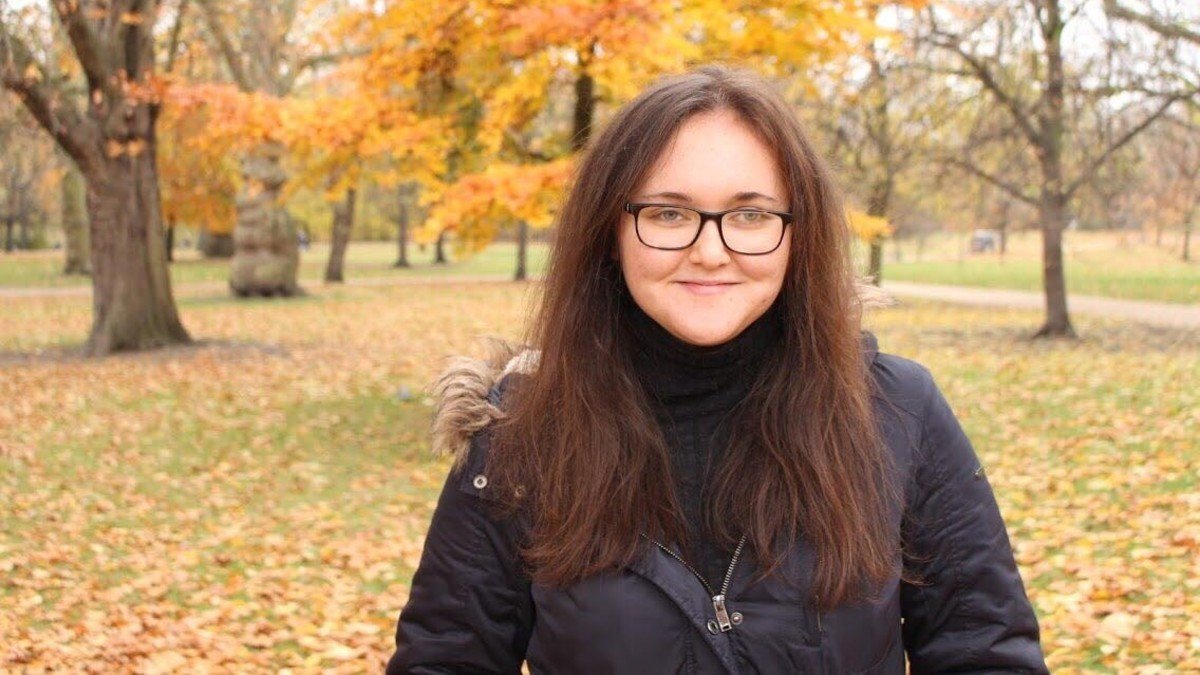
Perovskite solar cell technology pioneer Dr Olga Malinkiewicz is one of Roma's inspirations
Roma: Dr Olga Malinkiewicz is one of my inspirations. In 2014, she made a notable advancement in the field of perovskite solar cell technology for her PhD thesis. She founded her own company to develop this further, which received millions in global investment. At 38, she works as its Chief Technology Officer while also being a mother. A pioneer, a scientist and a mum – proof women can do it all!
Why should more women study science, technology, engineering and maths (STEM) subjects?
Maya: Men and women tackle issues differently. We always increase our chances to overcome issues when problems can be seen from different angles.
Melanie: Because these subjects keep your brain busy and interested! I love the international dimension of STEM, too. I travelled a lot in my 20s and I gained so much from being able to work with people from all over the world. I’m hoping the Covid-19 crisis is going give STEM a higher profile in our society, so more people will consider it as a career.
Daniela: If more women pursue a scientific career, then more women will follow. And there will be more women in key roles that are now male-dominated.
Roma: Science is a collaborative effort and collaboration thrives when different minds and views work together. If more women are encouraged and supported when studying STEM, it will lead to a more diverse academic community. In turn, this will positively impact every scientific field and discipline.
What legacy do you hope to leave for the next generation of female scientists?
Maya: I hope my example will make other women realise we can balance work and personal lives, and this includes having children and taking care of them properly while pursuing important scientific issues.
Women shouldn’t have to choose between being a scientist, a mum or a fighter. We can be all of those at once.
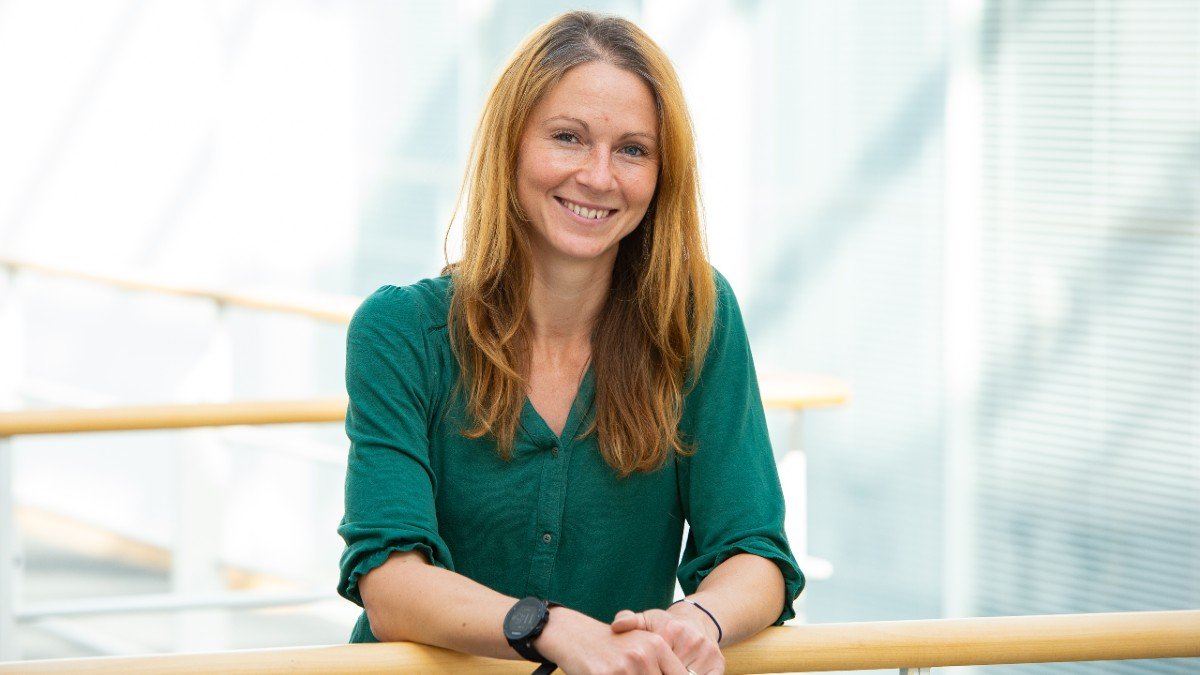
Melanie hopes “women scientists” won't be a “thing” in the future
Melanie: I find it frustrating when women are picked out to work on committees, interview panels or funding panels for “gender balance”. It’s well intentioned but it puts a higher burden of work on women than their male counterparts. I sincerely hope “women scientists” will not be a “thing” in the future.
Daniela: I hope through my scientific publications and dissemination of my work, female students will be inspired and pursue a career in science.
Roma: I hope no matter where my career leads me that I leave the field of science in a better place than I found it. I also hope any girl who wants to follow chemistry will have just as many – if not more – opportunities than I did.
Learn more about studying in our School of Chemistry and Chemical Engineering.
